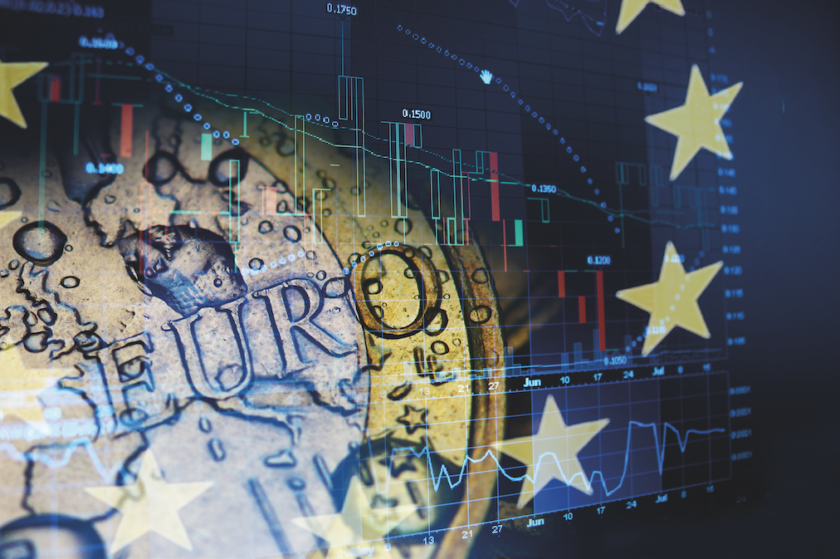Darius McDermott, managing director, FundCalibre, considers the question.
“When has Europe ever been a good place to invest as a whole? There is always something to worry about in terms of dysfunction from either an economic or political perspective. That is what gives active investors in Europe the opportunity to find great, globally exposed companies at attractive valuations – because of the stigma around Europe as an investment arena.”
The above quote is from a fund manager we recently talked to about all things Europe – frankly I’m thinking of putting the quote on the wall in our office to remind us all there are always opportunities within volatility!
The fact is, European equities are under the microscope again – as military action and rising inflation place pressure on the region. Positive expectations at the start of this year (where European equities were expected to be up around 50 per cent from 2021*) have given way to negative sentiment, with the market now starting to price in the risk of an upcoming recession.
The attritional nature of the war in Ukraine continues to weigh heavily on the region. While Russia is not a major trading partner for the EU, roughly a third of the natural gas used in Europe is imported from there. Most European countries are net energy importers and are unable to store enough gas for winter without ongoing supplies – winter blackouts are a real possibility**.
However, the region is already responding with the accelerated move towards renewable energy – an area where Europe is a market leader.
And what the war does continue to affect is sentiment towards the region, with investors unlikely to trust it fully until we see some type of resolution.
Amid this geopolitical concern is rising inflation, which hit 8.6 per cent in June – placing further pressure on the European Central Bank to find a balance between managing inflation and growth. This comes at a time when countries across Europe are looking to increase spending on defence and energy projects. Rising prices will also create challenges for numerous consumer-facing sectors.
However, recent research from Lazards indicates things may be set to improve on the inflation front. Having conducted meetings with over 500 management companies in the second quarter, the firm says there are indications production constraints may be starting to ease – with the likes of car companies getting improved access to semiconductors and chemical businesses seeing less tightness in production**.
Role of the ECB
Like other central banks, the ECB has been behind the curve on inflation, and it has only recently begun to move to a tighter monetary policy. However, the central bank has moved quickly to look at a new bond buying tool to counteract any potential threat to the creditworthiness of the likes of Italy and Spain – as it seeks to prevent the potential of another sovereign debt crisis.
Figures from the International Monetary Fund now project growth of 2.8 per cent for the euro zone area in 2022***, the lowest of all developed market regions, as it once again navigates significant uncertainty. The market is also the worst performing area year-to-date, down 13 per cent****.
However, while the short-term outlook is uncertain, the medium to long-term prospects for European equities are more positive. For example, figures from Morgan Stanley recently showed that Europe is currently trading at record discount to US equities^. That could make it an ideal market for stock pickers.
Another consideration is European small-caps – a vastly under-researched area of the market, with some 2,500 European stocks with a market-capitalisation between £100m and £5bn, compared to only 400 companies above this mark. History also shows these companies tend to outperform when interest rates rise.
Then there is the renaissance in value investing. I’ve long since said that the landscape has changed for value and that even if inflation halved from this point – value sectors like banks and energy would look more attractive.
You always have to look to Europe long-term and expect bumps in the road. However, it’s innovative and global nature does mean there will always be major opportunities. The region has a number of leading companies in the likes of healthcare and renewables, while the style shift also brings the likes of financials and utilities to the fore. It is the ideal environment for a talented stock-picker.
Core holding: GAM Star Continental European Equity invests in large companies, with the team preferring those they believe will grow faster than the index. The team looks to buy stocks at the point where they are either out-of-favour or where growth prospects are believed not to be fully reflected in the share price. The fund has a low turnover and is not constrained to an index.
Growth at a better price: Comgest Growth Europe ex UK might appeal to investors wanting a growth strategy at better prices. The portfolio’s valuation multiple has come down substantially (albeit from elevated levels) and its forward price earnings multiple is now back to its long-term average. The managers believe the idiosyncratic and defensive nature of these companies should prove resilient in the case of a recession, as it has in the past.
Income play: Managed by Andreas Zoellinger, the BlackRock Continental European Equity Income fund is designed to find a balance of companies with large, but secure dividends, while also growing them faster than the average business.
Small-caps: Janus Henderson European Smaller Companies fund is a style agnostic vehicle (small caps with a value focus is not common). The fund also targets companies at various points in the investment cycle – allowing the managers to diversify their revenue streams accordingly.
Pros and Cons of investing in Europe now
Pros
1) We may see a resolution to the war in Ukraine or even a temporary peace which could trigger a relief rally
2) European equities are attractively valued – particularly in comparison to the US
3) There are a lot of quality global businesses which just happen to be listed in Europe
4) Euro Small Caps have proven their resilience longer-term
Cons
1) Very likely Europe will go into recession which could lead to a nasty economic downturn
2) ECB may be forced to raise interest rates to tackle inflation – potentially triggering a Eurozone debt crisis
3) Fears around an energy war and the dependence of some countries on Russia
*Source: European Equities: stay the course in 2022
**Source: Lazard – Outlook for European Equities – July 2022
***Source: IMF World Economic Outlook – April 2022
****Source: FE Analytics, total returns in sterling, 31 December 2021 to 8 July 2022
for MSCI World, FTSE 100, Nikkei 225, S&P 500, MSCI AC Europe, MSCI Emerging Markets and MSCI China,
^Source: Morgan Stanley, April 2022, Average premium of PE, PBV and PD
Past performance is not a reliable guide to future returns. You may not get back the amount originally invested, and tax rules can change over time. Darius’s views are his own and do not constitute financial advice.































